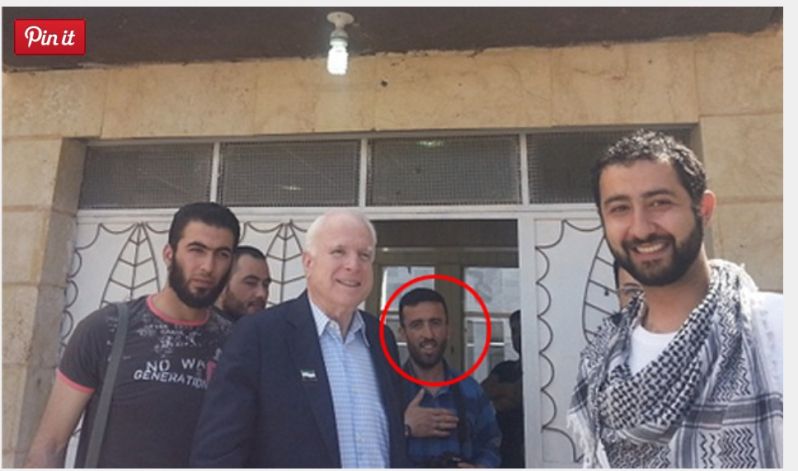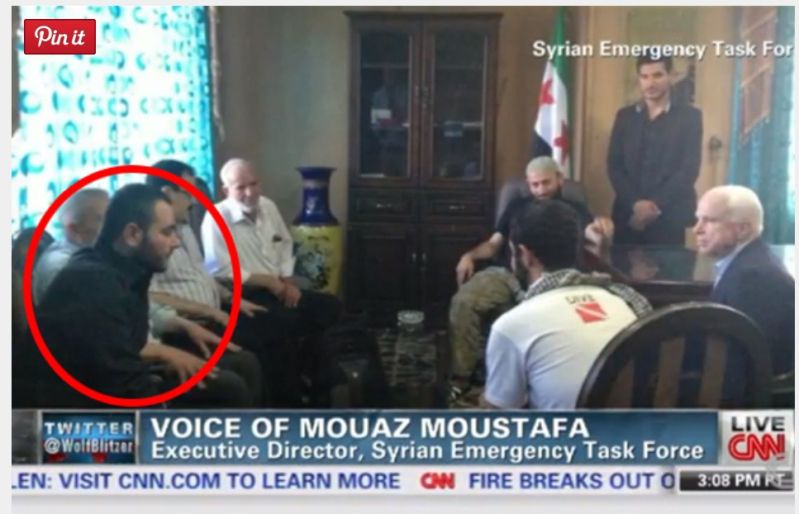Islamic State and the Afghan analogy
The Islamic State is threatening to define the United States foreign policies in the near term. The stark message conveyed in the video on the killing of American journalist Steven Sotloff is that an action-reaction syndrome is setting in. Every move by President Barack Obama can provoke a counter-move by the IS.
The counter-move at this stage could mean the IS killing more American (and/or British) nationals. But if King Abdullah of Saudi Arabia is to be believed, expect an apocalyptic escalation shortly — an IS strike within a month or two in the US or Europe. Make no mistake, he would have warned only on the basis of hard intelligence.
What could be Obama’s options? His letter to the Congress on Monday, here, on the War Power Resolution Regarding Iraq has already become obsolete. His “don’t-do-stupid-stuff” ideology is the butt of ridicule in the US. The opinion seems to be converging, nonetheless, about the importance of the US not doing anything really stupid, either.
The heart of the matter is that a coherent strategy to defeat the IS is struggling to be born. The broad thinking seems to be reflected in what Senator John McCain wrote in the New York Times: “No one is advocating unilateral invasion [of Iraq], occupation or nation-building.” Having said that, McCain urged stepped-up military action against the IS.
He explained: “This should be more like Afghanistan in 2001, where limited numbers of advisers helped local forces, with airstrikes and military aid, to rout an extremist army.”
Will the Afghan analogy work in Iraq? But then, what is the Afghan analogy? In a nutshell, the US enabled the erstwhile Northern Alliance militia to chase the Taliban away. The US gave air cover, bribed, supplied arms and ammunition to the warlords and sent special forces operatives to render advice. More or less, this is also Obama’s approach in Iraq.
Can it work? The critical difference is that the NA militia, drawn on ethnic lines, were a highly motivated and battle-hardened force and fiercely loyal to their commanders. A counterpart is not available in Iraq. Much halo surrounded the Kurdish Peshmerga but it dissipated once the IS took them on and, besides, analysts overlook that Iraqi Kurdistan leadership in Erbil is just about as venal and corrupt and decrepit as the leadership in Baghdad.
Second, Taliban were a provincial force, whereas IS is stunningly cosmopolitan. The Taliban meekly obeyed the diktat from Pakistan and melted away without putting up a fight — to live and fight another day, of course — whereas, the ISIL is made of sterner stuff and is no longer amenable to its mentors abroad in Saudi Arabia, Qatar, Jordan or Turkey.
Unlike the Taliban which depended on Pakistan critically for sustenance, including manpower, IS is reportedly flushed with money, has huge weapons stockpiles and has no dearth of fighters. Put differently, the US has to fight its way to victory in Iraq, unlike in Afghanistan where Pakistan rendered valuable help in the overthrow of the Taliban regime.
The IS’ warning to other countries against participating in the US operations will be taken seriously by Saudi Arabia, Qatar, Jordan, etc.
A nasty, brutish, short operation won’t do. The famous adage by the former secretary of state Colin Powell comes to mind — “If you break it, you own it.” From all accounts, the IS threat is far more than an operational issue. The struggle is political and ideological and would have regional dimensions.
In a brilliant essay in the London Review of Books, Patrick Cockburn of Independent newspaper and an acclaimed author on Iraq has assessed the IS’s consolidation in Iraq and the Caliphate as the single biggest geopolitical event since the Sykes-Picot settlement of 1916.
Finally, the US invasion of Afghanistan took place in an entirely different international context. To recap, once the NA militia drove away the Taliban from Kabul, Washington suo moto put “boots on the ground” and got an ex-post facto mandate from the UN for it. Eventually, the US transformed it into the ISAF, which became a de facto NATO war.
All this was done without consulting the Afghans, leave alone with their consent. In fact, the then foreign minister in President Burhanuddin Rabbani’s interim government, Dr. Abdullah Abdullah protested when it was known that the US ground forces had landed in Bagram in end-2001. The NA was under the impression that the US had no such intention.
Yet, if the Afghans meekly submitted, and if the US got away with murder, it was because of the acquiescence of the regional powers with the thrust of the US invasion. But today, the situation is very different.
It is impossible for the Obama administration to secure the fig leaf of a UN Security Council mandate, given the cold-war climate. At a time when the NATO regards Russia as its number one adversary, why should Moscow give a helping hand?
All things taken into account, the US’ best interest lies in making the war against the IS a war waged by the world community. But for that to happen, the Obama administration needs to address the fundamental contradictions in the US’ foreign policies. (The curious part is that the US seems to be aware of it, too, and yet won’t take a course correction.) Or else, the danger is that the US will be locked in, which is what the IS is aiming at.
Posted in Diplomacy, Politics.
Tagged with Caliphate, Islamic State, NATO expansion, New Cold War, Taliban.
By M K Bhadrakumar – September 3, 2014


